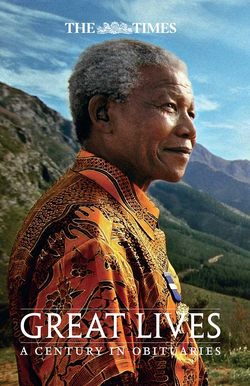Читать книгу The Times Great Lives - Anna Temkin - Страница 13
D. H. Lawrence
ОглавлениеA writer of genius
2 March 1930
David Herbert Lawrence, whose death is announced on another page, was born at Eastwood, near Nottingham, on September 11, 1885. His novel Sons and Lovers and his play The Widowing of Mrs Holroyd are at least so far biographical as to tell the world that his father was a coalminer and his mother a woman of finer grain. At the age of 12 the boy won a county council scholarship; but the sum was scarcely enough to pay the fees at the Nottingham High School and the fares to and fro. At 16 he began to earn his living as a clerk. When his ill-health put an end to that, he taught in a school for miners’ boys.
At 19 he won another scholarship, of which he could not avail himself, as he had no money, to pay the necessary entrance fee; but at 21 he went to Nottingham University College, and after two years there he came to London and took up teaching again. It was in these years that he wrote, under the name of Lawrence H. Davidson, some books on history. He had begun also the writing of fiction, and his first novel, The White Peacock, was published about a month after his mother’s death had robbed him of his best and dearest friend.
Sons and Lovers, published when he was 28, brought him fame. Many years of poverty were to pass before his work began to make him financially comfortable; and even then the collapse of a publishing firm in America deprived him of some of the fruits of his labours. But this revolt against society which fills his books had its counterpart in his life, in his travels, and especially in his attempt to found, in 1923, an intellectual and community settlement in New Mexico.
Undoubtedly he had genius. He could create characters which are even obtrusively real. His ruthless interpretation of certain sides of the nature of women was recognized by some women to be just. Every one of his novels, as well as his books of travel, contains passages of description so fine that they command the admiration of people whom much of his work disgusts. His powers range from a rich simplicity, a delicacy almost like that of Mr W. H. Davies, to turbulent clangour, and from tenderness to savage irony and gross brutality. There was that in his intellect which might have made him one of England’s greatest writers, and did indeed make him the writer of some things worthy of the best of English literature. But as time went on and his disease took firmer hold, his rage and his fear grew upon him. He confused decency with hypocrisy, and honesty with the free and public use of vulgar words. At once fascinated and horrified by physical passion, he paraded his disgust and fear in the trappings of a showy masculinity. And, not content with words, he turned to painting in order to exhibit more clearly still his contempt for all reticence.
It was inevitable (though it was regrettable) that such a man should come into conflict with the law over his novel The Rainbow, over some manuscripts sent through the post to his agent in London and over an exhibition of his paintings. But a graver cause for regret is that the author of Sons and Lovers, of Amores, and the other books of poems, of Aaron’s Rod, the short stories published as The Prussian Officer, Ladybird, and Kangaroo should have missed the place among the very best which his genius might have won.
In 1914 Lawrence married Frieda von Richthofen, who survives him. He left no children.
